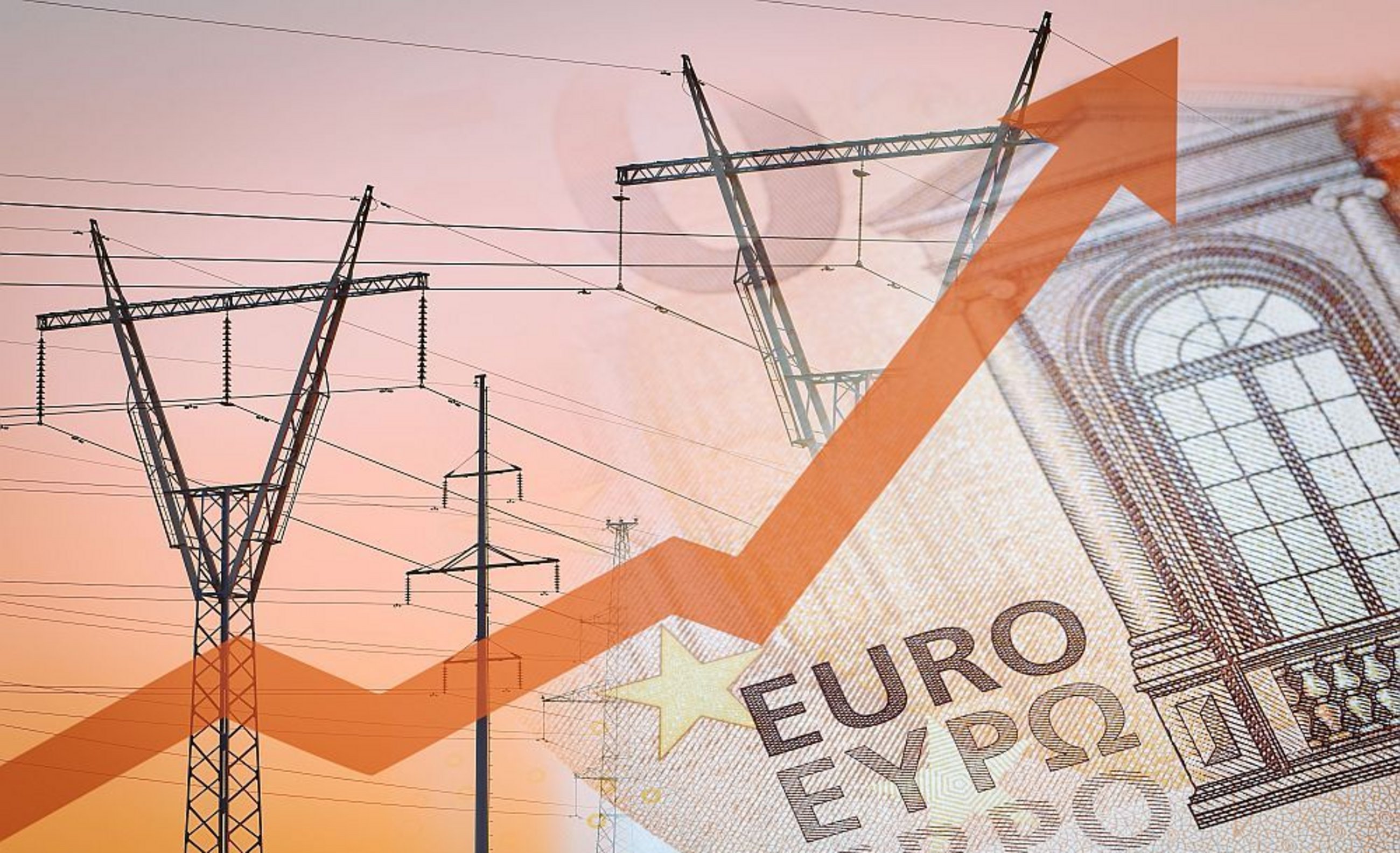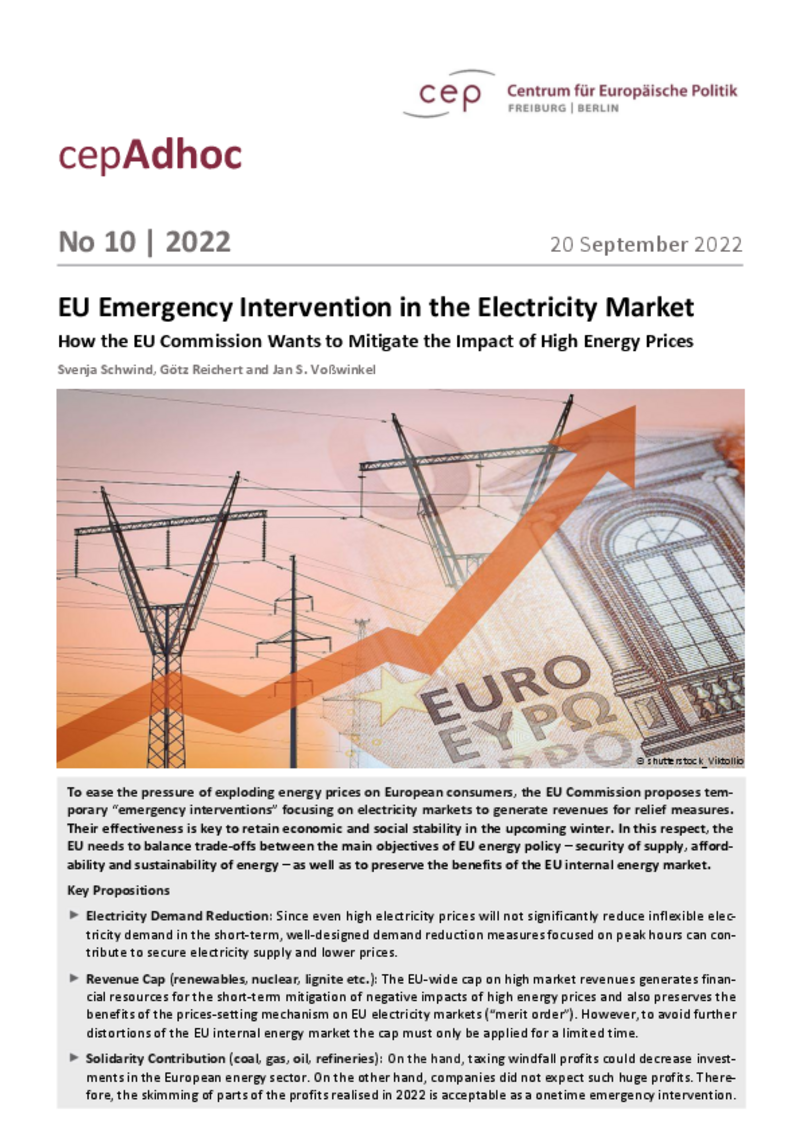
Energy
EU Emergency Intervention in the Electricity Market (cepAdhoc)
cepAdhoc
“The energy crisis requires immediate and coordinated action at EU level,” says cep energy expert Götz Reichert, who analysed the Commission’s proposals with cep economists Svenja Schwind and Jan S. Voßwinkel. The EU and Member States face the challenge of balancing the main objectives of security of supply, affordability and sustainability of energy. At the same time, the benefits of the EU electricity market design should be preserved.
“While it will be impossible to reach pre-crisis price-levels, the proposed measures will nevertheless help to mitigate the impact of high gas and electricity prices in the short term,” Schwind stresses. “If Member States introduce well-designed electricity demand reduction measures that focus on peak hours, electricity prices can also be reduced”
According to Schwind, the measures provide both direct and indirect incentives to save electricity. The price signal of the electricity market remains intact. “High electricity prices expose supply shortages and set incentives to reduce electricity consumption,” Voßwinkel explains. The plans also do not imply a structural change in the EU electricity market design. “Accordingly, the revenue cap in particular should only be introduced for a limited period of time in order to mitigate the immediate challenges of securing energy supplies and the effects of high energy prices in the upcoming winter,” Schwind emphasises.
Download PDF
| EU Emergency Intervention in the Electricity Market (cepAdhoc) (publ. 09.20.2022) | 472 KB | Download | |
 | |||





